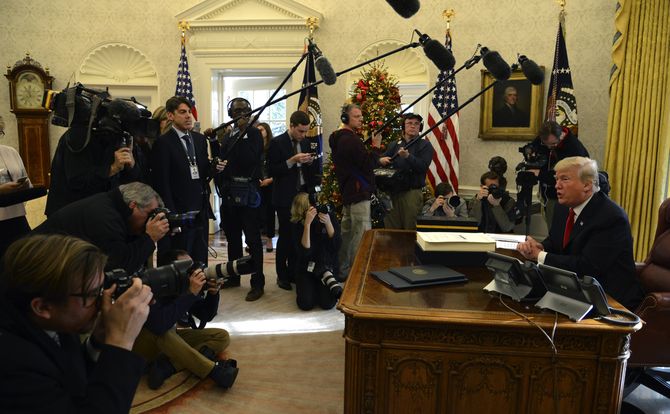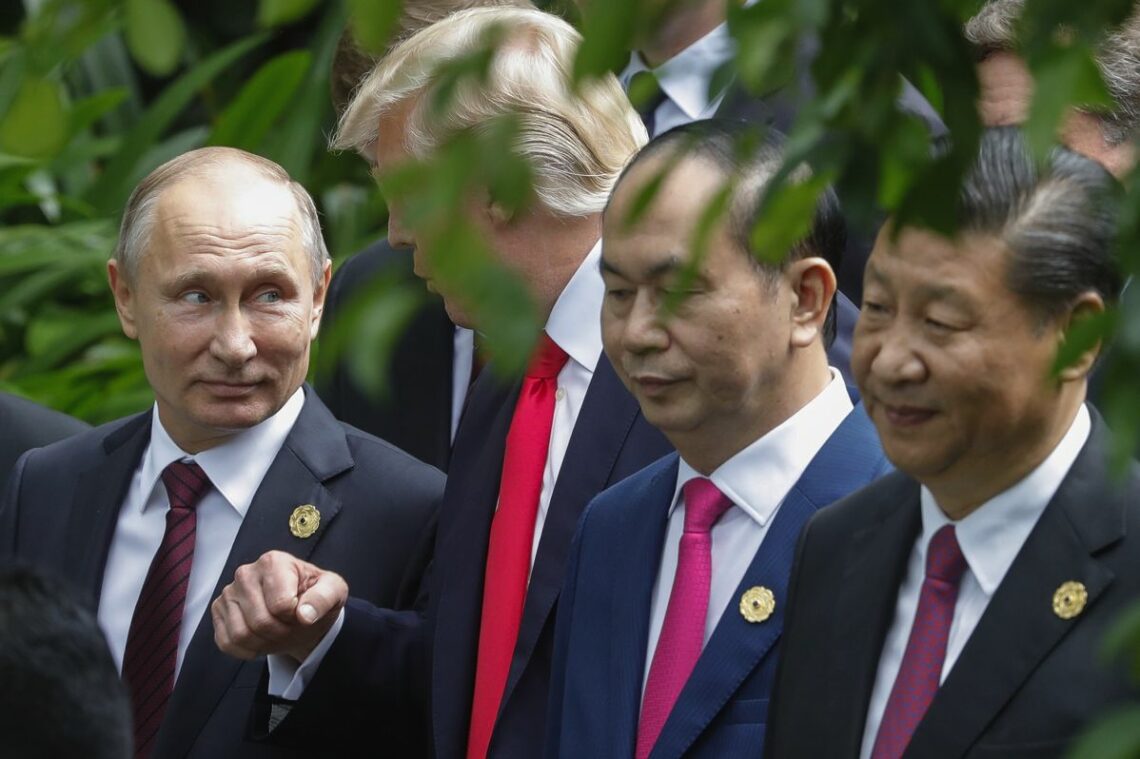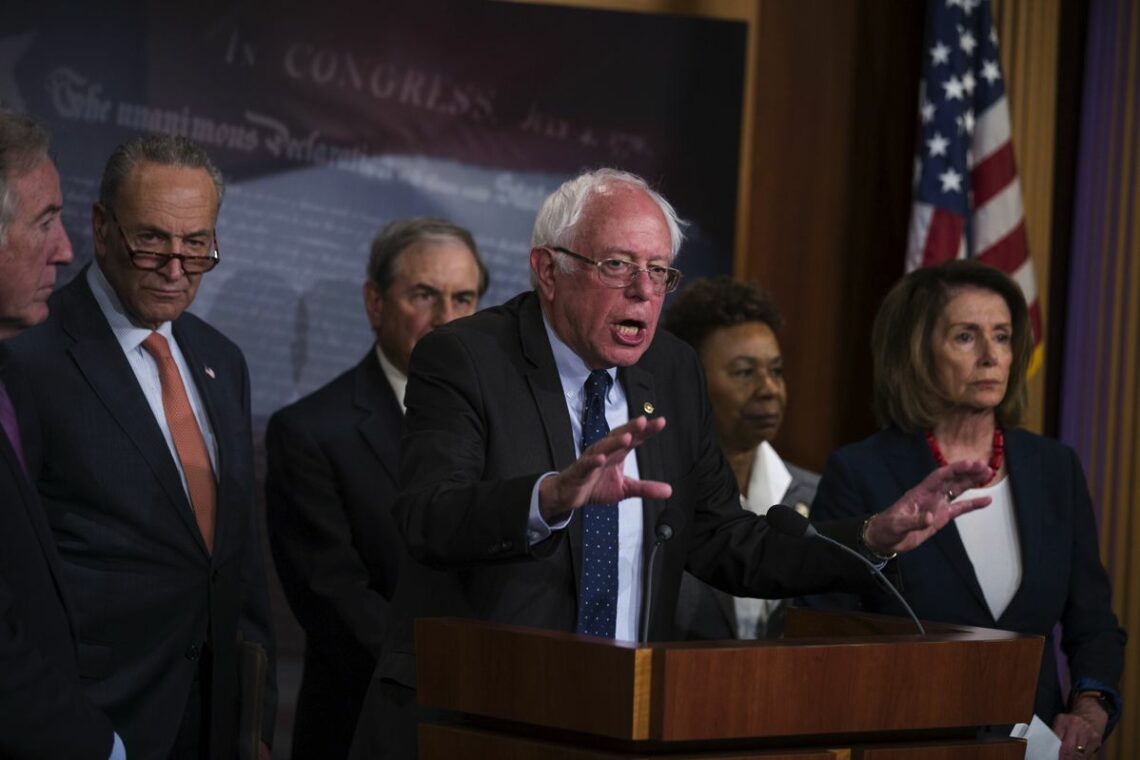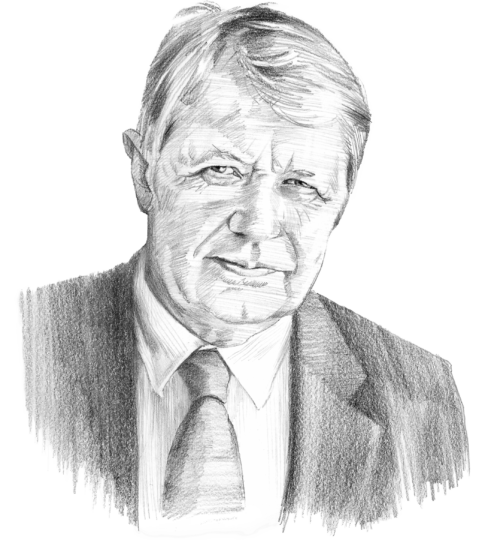2018 Global Outlook: The Trump presidency, Year Two
After a year in the White House, Donald Trump is suffering as much from his own erratic personality as from the burden of office. Foreign policy in the traditional, institutional sense has ceased to exist, and the way the president and Congress operate suggests there will be little room for maneouver once domestic troubles start to mount.

In a nutshell
- Donald Trump is fighting the domestic policy establishment and multilateralism
- Passage of the tax bill has reinforced the president’s determination to break taboos
- The conservative thrust of U.S. politics reinforces disregard for the international order
- How disruptive this proves for global geopolitics depends on how U.S. partners respond
GIS begins 2018 with a series of reports examining the main geopolitical trends in the year ahead. There is no better place to start than with the world’s preeminent superpower, the United States, and with its most influential decision maker, President Donald Trump.
Wise observers of the American republic like George Kennan and Arthur Schlesinger concluded decades ago that, in John Steinbeck’s words, “we give the President more work than a man can do, more responsibility than a man should take, more pressure than a man can bear…he is ours, and we exercise the right to destroy him.”
The responsibilities of a president of the United States are so vast that even under normal circumstances, he can only focus on a handful of major projects at a time. His only chance to be successful is to prioritize ruthlessly and rely on the bureaucracy of the executive branch, overseen by capable lieutenants. But Donald Trump has chosen to deliberately exacerbate this presidential predicament.
After one year with Donald Trump in the White House, one needs to distinguish between the burdens of the office and the pressure self-inflicted by an erratic personality. Yet most of the worries produced by the Trump presidency stem from his deliberate efforts to wage war on two fronts – against the domestic political establishment, and against international multilateralism.
Trump’s system
Not only has Mr. Trump withheld nominations that would allow the higher echelons of the government administration to be replenished, but he has made budget cuts intended to deactivate key agencies – first and foremost the State Department (which has seen its budget cut by 30 percent). Many key positions, including at key embassies, have remained unfilled. For example, in the middle of a nuclear crisis with North Korea, there is no U.S. ambassador in Seoul.
While serious differences have developed between President Trump and Secretary of State Rex Tillerson over negotiating with North Korea or the nuclear agreement with Iran, it should be stressed that there is no sign that they disagree over shaking up the diplomatic corps. It was Mr. Tillerson, after all, who effectively dismantled the State Department, even though he is seen abroad as a somewhat reassuring figure, a moderating “adult” in the Trump team.
President Trump often delegates contested decisions, even to global competitors like China and Russia.
American presidents always have a determining role in foreign affairs. In Mr. Trump’s unique system, he dominates without strong institutional checks, mostly through daily tweets that are said to reach 40 million Americans directly and a far larger international audience through the global media. These communications rarely display a constructive effort to shape an international order in disarray.
Also striking is President Trump’s habit, in difficult cases, of shying away from contested decisions and “delegating” them to third parties, whether to the Senate in the case of the Iran agreement, or even to global competitors like China and Russia when pressure needed to be applied to North Korea. This is tricky because Chinese and Russian interests are far more complex and ambiguous. These two powers are much more interested in limiting U.S. influence in the Pacific than in nuclear nonproliferation. It is significant that North Korean missile technology is reported to be largely provided by Russia.
Mr. Trump’s combination of rashness and caution was perhaps most insightfully described by the columnist Roger Cohen: “He’s a property guy raised in New York. Property is a conservative business. That’s inside Trump, too: He walks to the edge but not over it.”
In the U.S. system of government, the president’s voice is decisive. The Trumpian paradox, however, is that he believes in “me-ism.” As he has told Fox News, “the one that matters is me. I am the only one that matters, because when it comes to it, that’s what the policy is going to be.” In other words, for President Trump, foreign policy in the traditional, institutional sense has ceased to exist. At the outset of 2018, the U.S. is not only losing ground internationally, but has deliberately foregone opportunities to play a constructive role in its own interest.
Typically, presidents turn to foreign affairs when they face an impasse in domestic politics. Mr. Trump has followed the traditional separation of domestic and foreign policies, but is sticking firmly to his domestic priorities, even if that means accepting damaging consequences abroad.
No help from Congress
All this is happening at a time when Congress has lost its traditional competence in foreign affairs, precisely as disarray abroad increases the need for leadership. Both aisles in the Senate and the House have lost their power to shape policy to overcome international crises, let alone pursue long-term American interests. This would not be so bad if President Trump had not decided to give the Senate the last word on unpleasant decisions, such as the sanctions on Russia and Iran.
The reset in relations with Russia that Mr. Trump originally sought was derailed by the “collusion” scandal, including undisclosed contacts between his transition team and the Russian ambassador. As a result, Congress imposed sanctions on Russia that may end up hurting close U.S. allies even more, in particular due to the impact of extraterritorial legislation.

If the Senate votes to abrogate the international agreement limiting Iran’s nuclear program, it will plunge the Middle East into even greater chaos and alienate key treaty partners in Moscow, Beijing, Berlin and Brussels. The impact on Iran’s internal politics would be incalculable, especially given Saudi-Iranian tensions and the mediating role Europe hopes to play. It is too early to tell how Congress may be asked to get involved in the escalating North Korean crisis, which President Trump apparently still expects China to help resolve.
The way Mr. Trump and the present Congress operate suggests there will be little room to maneuver on foreign policy once the Trump administration’s domestic troubles start to mount. The president’s standing in the polls is presently embarrassingly low and the mood in the country is turning sour and angry, which in a way is the atmosphere President Trump and his entourage had hoped to produce. Above all we have seen a shift in the media toward a highly ideological conservatism, far beyond what Mr. Trump’s supporters on Fox News – his favorite platform – usually proclaim. The recent acquisition of Time Inc. by the Meredith Corporation, funded in part by private equity from the Koch brothers, is a case in point.
Economic centerpiece
The president got his tax bill – arguably the centerpiece of his agenda – accepted on his own terms, which is more than most of his predecessors achieved in their first year in office. But its fiscal impact and the resulting budget cuts are expected to intensify social tensions at the expense of Mr. Trump’s most loyal followers. The compromise on a funding bill expired on December 20, and even though it was extended until mid-January, it is unlikely that the Democrats will let an opportunity pass to exert pressure on the GOP and the administration with the threat of a government shutdown.
The tax bill is obviously a major political success for President Trump. It will be up to the Republican Congress to curb the resulting increase in debt. Yet the threat of social spending cuts will only mobilize the Democrats, who can expect to post gains in next year’s midterm elections. Meanwhile, any constraints on the defense budget, which Mr. Trump wishes to increase dramatically, would be unpopular within the GOP. Against this backdrop, a bipartisan agreement on the debt limit for next year’s budget is essential to avoid sequestration. Additional deregulation can also be expected, but will not ease the budget problem.
Recent experiences with Canada show that blunt instruments to limit imports tend to be self-defeating.
This fiscal dilemma is complicated by another key item on the Trump agenda – narrowing the trade deficit. The recent experiences with Canada, including punitive tariffs placed on Bombardier C Series airliners and proposed taxes on Canadian heavy crude, show that blunt instruments to limit imports tend to be self-defeating. Canada retaliated by threatening to reject a Boeing bid to supply jet fighters, while U.S. refiners and gasoline exports would be hurt if the Canadian oil flow stops.
Key U.S. allies like Japan and Germany are also on the Trump administration’s list of candidates for antidumping or countervailing duty measures. While these penalties may fail to reduce the trade deficit, they could hurt the U.S. labor market, not to mention the possible political damage. Yet it is quite possible the president will go ahead, for example, to support the domestic steel industry.
Elusive win-wins
On balance, President Trump appears to have few opportunities for win-win strategies. That is not damaging at present, when U.S. economic indicators (especially headline growth and employment data) are favorable. Even if the long-term potential for social tension is increasing, Mr. Trump’s economic policies will strengthen his political standing at least temporarily, especially given the rising conservative mood in the country. Moreover, the internal controversies that have plagued both parties in Congress, and especially the GOP, have relieved some of the earlier pressure on the president and widened his freedom of action. In recent weeks, Mr. Trump has even hosted Democratic leaders in the White House and found support for key decisions on the federal budget or taxes.
The Supreme Court’s decision to let Mr. Trump’s immigration ban take effect will tend to reinforce ongoing changes in the conservative mainstream, as will a growing acceptance of the president’s determination to ignore or break domestic and international taboos. But in the medium term, these changes will only intensify the challenges American society is facing. In this context, the warning by former President Bill Clinton resonates: “Americans must decide who they really are.” An early test will be the midterm elections in November 2018.
More important, however, is that Roy Moore bucked the Republican establishment – and lost.
The Alabama by-election on December 12 shows the current state of Congressional politics. The loss of a seat occupied for a quarter century by a Republican cut the GOP’s Senate majority to 51-49. The party’s share of the popular vote in a solidly “red” state dropped from 62 percent to 48 percent. Roy Moore, the losing candidate, was a far-right conservative supported by former White House Chief Strategist Steve Bannon and eventually by Mr. Trump himself, amid public outcries and claims of sexual misconduct. This outcome will only encourage the Democrats.
More important, however, is that Mr. Moore bucked the Republican establishment – and lost. Earlier, Senate Majority Leader Mitch McConnell had called on him to withdraw, predicting that an ethics investigation might result in his expulsion. The defeat vindicates the Republican leadership and weakens insurgents like Mr. Bannon on the extreme right. This could help calm tensions and may even give President Trump an opportunity to reunite the party. In that case, the loss of a Senate seat may be more than offset by the chance for a compromise with conservative Democrats.
American mood
In early 2018, the U.S. has the makings of an internal crisis much broader than its leadership capacity can absorb. There are no personalities in reserve to help steer the country away from worsening domestic trouble, and neither party offers a political program that offers a realistic way out – no matter how often the Roosevelt model is conjured up. All interests will be focused on this year’s driving event, the midterm elections in November 2018.
To win control of the Senate, the Democrats need to hold 25 out of the 33 seats up for reelection, plus take another two from the GOP. In the House, they would need to pick up at least 24 seats to achieve a majority. Given the demographic distribution among House districts, the Democrats would have to win the national vote by more than seven percentage points to ensure a slim majority in the lower chamber.
While the Trump factor may weigh heavily in close races, the prevailing mood hardly favors a Democratic victory. Uncertainties over who will be the party’s standard-bearer in the next presidential race does not help, especially because Bernie Sanders’ ambitions are likely to split the Democratic Party. Senator Sanders would also be 79 years old on inauguration day in January 2021; his expected main rival, former Vice President Joe Biden, will be 78. Other potential contenders, including Philip Murphy, the governor of New Jersey, have yet to win national recognition.

With little going right for the U.S., there is no reason to expect that the workarounds now being used in Washington and by international partners will bring back the good old days. The U.S. will never again be what the world got used to since the late 1940s. The country’s present condition is the product of long-term undercurrents that surfaced with Trumpism, and also stems from its response to a changing global environment that the U.S. is increasingly unable to mold in its own interest.
One of the most astute observers of the U.S., Tyler Cowen, wrote that American society has fallen into a state of stagnation and complacency; Mr. Trump’s “making America great again” was “mostly a promise that in electing him, voters could avoid the forces of change that are sweeping over the rest of the world, whether it be the loss of manufacturing jobs, an increasing dependence on immigrants, or the loss of the political and cultural dominance of white men.”
American politics is caught in a deeply conservative thrust that is far stronger than the Trump presidency. Often, it takes the form of a growing and oddly reassuring disregard for the international order, which Peter Zeihan, another bestselling American author, summed up in The Accidental Superpower (2014): “Simply put, the world is indeed going to hell, but the Americans are going to sit this one out.”
Partners and rivals
Much depends now on how the world responds. The obvious decline of U.S. global power is occurring from a very high plateau that will ensure American preeminence and global reach for years to come. Unlike the chaos after World War II, when the U.S. stepped in to restore order, this time it will be up to empowered foreign nations to help create global conditions within which the American system can flourish and be kept within the bounds of civility.
In a way, the reliance of U.S. allies on their superpower partner has always had this downside. American power’s unprecedented disruptive potential had to be contained and channeled toward building a framework for global cooperation. This continues to be true. In its own unique fashion, the U.S. remains indispensable to the international order, even as it begins to function more like an ordinary country.
The worst thing that could happen to Europe is for anti-Americanism, informed by anti-Trumpism, to triumph.
The year 2018 will offer ample opportunities to develop new modes for dealing and cooperating with the U.S. The other global powers, especially Europe, will need to combine flexibility with steadfastness when critical situations develop in the Middle East or the Western Pacific. In varying ways, China, Russia and Europe will have a decisive influence on the course of events – but so will nations with less global outreach, such as Japan, India, Australia or Argentina. They would be well advised not to tighten the fetters on American foreign policy, to use the late Stanley Hoffmann’s metaphor in Gulliver’s Troubles (1968).
Europe is once more addicted to stereotypes, especially of Russia in search of its identity and global role. Yet the worst thing that could happen to Europe, the U.S. and the world would be for outright anti-Americanism, informed by anti-Trumpism, to triumph. Europe does not have the option simply to wait for more congenial changes in the U.S., if only because Donald Trump may become a two-term president. Europe needs to strengthen, reform and refine its own model of governance and thus renew what has so often proven to be its strong suit – close cooperation and co-development with the U.S. Profound changes on both sides of the Atlantic make this a difficult challenge. But to quote Stanley Hoffmann again: “world order politics is a pattern of education.”
However, this prudent advice could fail with a president eager to deviate – even shockingly – from the conventional wisdom. Mr. Trump’s erratic temper coincides with his evident pride in being recognized as “unpredictable.” It is possible that his domestic base could become a moderating influence if political successes and a changing popular mood move it closer to the mainstream. This would make the president’s international behavior less driven by efforts to compensate for domestic shortcomings – a familiar pattern with many his predecessors – than by the need to respond to future crises.
Retreat and renewal
When the president of the preeminent global power prides himself on acting unpredictably in turbulent conditions, it is difficult to make reliable forecasts. The U.S. will probably avoid conflicts with other great powers unless it gets cornered – which is unlikely to happen. In fact, President Trump may well seek the support of global competitors to reduce risks and resolve regional crises.
On December 18, Mr. Trump did sign off on a new National Security Strategy (NSS) – a basic policy statement that resulted from extensive, bottom-up consultations. But this internal White House document did not necessarily reflect a wider consensus in the Trump administration. And the president hmself, in his delivery speech, sometimes strayed from the mainstream message of the strategy, whose most notable new element was its stress on the integral role of the economy in national security.
Unlike the Washington of today, Beijing is pursuing a long-term global strategy.
With the U.S. retreating from multilateralism, national interests will ever more openly guide the behavior of its competitors. China arguably is a declared global rival, but it will act in a long-term perspective and proceed with cautious determination. Unlike the Washington of today, Beijing is pursuing a global strategy, buttressed by the recent 19th Communist Party Congress. Russia has resorted to an increasingly assertive use of military power – the only asset it has left to support global diplomacy. Syria shows that such force projection can be successful if the U.S. feels unchallenged. Europe might also become more of a U.S. competitor, but its soft power – a real danger to Russia – will probably be shrugged off by the Americans, even if it is to their disadvantage.
The grand strategies of these real or potential rivals will probably be tested in 2018, with serious consequences for the U.S. The escalating crisis in North Korea will pose hard choices for China and Russia. Political disarray in Ukraine could well revive the potential for conflict between the nuclear superpowers, although President Trump could spring a few surprises in his dealings with Russia. Europe seems to be the most complex case in the near term. Its relations with the U.S. will be particularly affected by how Mr. Trump handles trade relations and the Middle East, especially the Iran nuclear deal and recognition of Jerusalem as Israel’s capital.
The U.S. may continue to alienate its allies and competitors alike, losing ground that other nations will seek to fill. Yet from President Trump’s perspective, this may only reinforce America’s stubborn self-assurance. While he will seek to avoid the more extreme risks, miscalculation and overreaction become increasingly likely as the global arena grows more precarious. Conditions are different than in the past, when the U.S. served as the ultimate mediator.
In 2018 and the years to follow, the U.S. will become less reliable as it retreats from its global role. Domestic politics will grow even more conservative, and the dark side of American politics – which has always existed – will be more openly displayed. Yet while this should not be expected in the near term, American liberalism in domestic and foreign affairs is bound to reassert itself. That does not mean a return to the golden days of Transatlanticism. But if America’s partners respond with measure and prudence, the U.S. with its human capital could resume its place as a “pattern of education” in world affairs.








